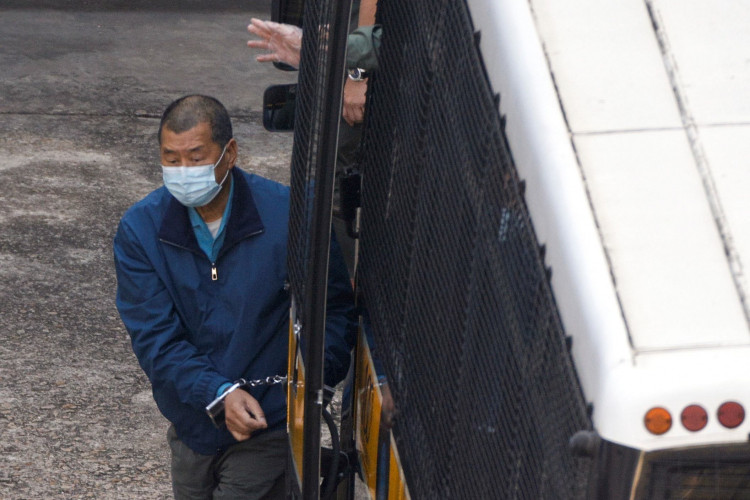In a significant legal development, a Hong Kong court dismissed Jimmy Lai's bid to end his high-profile national security trial. The court ruled on Thursday that the prosecution had presented sufficient evidence to proceed with all charges against Lai, the founder of the now-defunct pro-democracy newspaper Apple Daily. Lai, 76, has pleaded not guilty to two charges of conspiracy to collude with foreign forces and one charge of conspiracy to publish seditious material. These charges stem from the national security law imposed by Beijing in 2020, following extensive pro-democracy protests in Hong Kong.
Judge Esther Toh, one of the three national security judges overseeing the case, stated, "Having considered all the submissions, we ruled that the first defendant (Lai) has a case to answer on all charges." The trial, which has now extended to its 92nd day since it began on December 18, had initially been expected to last 80 days. It is set to resume on November 20, with Lai electing to give evidence in his defense. If convicted, he could face a life sentence.
Defense attorney Robert Pang argued that there was no case to answer, asserting that the prosecution's evidence was insufficient. Pang highlighted that agreements made before the enactment of the national security law would not automatically become illegal. He pointed out that prior calls for sanctions were lawful at the time and questioned the prosecution's interpretation of these activities under the new law. "Whatever was agreed previously, when calling for sanctions was perfectly lawful, was not agreed subsequently," Pang argued. He also emphasized that freedom of the press is guaranteed by Hong Kong's Basic Law and the Bill of Rights Ordinance. Pang noted that Apple Daily had consulted legal advisors to ensure compliance with the national security law, which he argued was "positive evidence" of their intent to adhere to the law.
The prosecution concluded its case in June, after calling eight witnesses, including five co-defendants who had previously pleaded guilty. Lai, a British citizen, has been in solitary confinement since December 2020 and is currently serving a five-year and nine-month sentence for violating a lease contract for the Apple Daily headquarters.
Western governments, including the United States and the United Kingdom, have called for Lai's immediate release, labeling the case as politically motivated. Hong Kong officials, however, have insisted that Lai will receive a fair trial. Both the Chinese and Hong Kong governments claim that the national security law has restored stability in the region, despite concerns from Western nations that it is being used to stifle dissent and curtail freedoms guaranteed under the 1997 handover agreement.
In a related development, Lai's lawyer announced on Thursday that Lai would testify in his defense against the charges brought under the national security law. Lai was arrested in 2020 during a crackdown on pro-democracy protests and charged with colluding with foreign forces and publishing seditious material. If convicted, he faces life imprisonment.
Observers note that Lai's trial has already stretched over 90 days and is viewed as a test of press freedom and judicial independence in Hong Kong. Following the 1997 handover from Britain to China, Hong Kong was promised the preservation of its civil liberties for 50 years. However, the enactment of the 2020 security law has significantly curtailed these freedoms.
Prosecutors allege that Lai sought foreign intervention against Beijing, pointing to his meetings with U.S. officials, including former Vice President Mike Pence and former Secretary of State Mike Pompeo. They claim Lai solicited support for sanctions against Chinese and Hong Kong leaders. Six former Apple Daily executives have pleaded guilty to collusion charges and have testified against Lai. They admitted to conspiring with Lai to call for sanctions and other actions against China and Hong Kong.
Hong Kong, once regarded as a beacon of media freedom in Asia, has seen its press freedom rankings plummet, now standing at 135th out of 180 countries in the latest World Press Freedom Index by Reporters Without Borders. The outcome of Lai's trial is being closely watched as a barometer for the city's judicial independence and the future of its media landscape.






